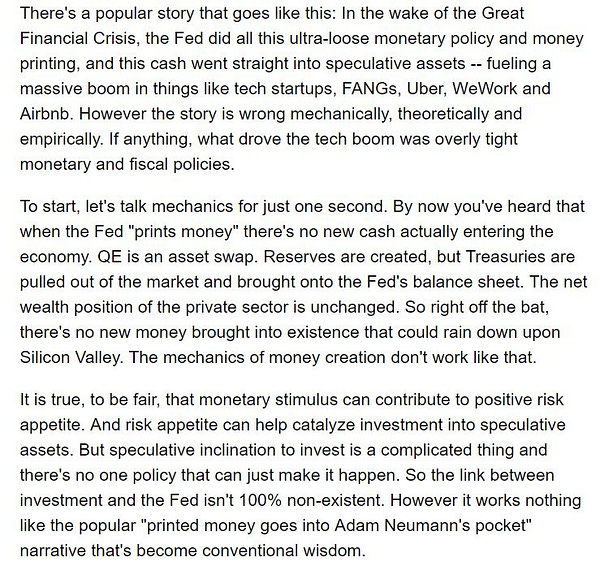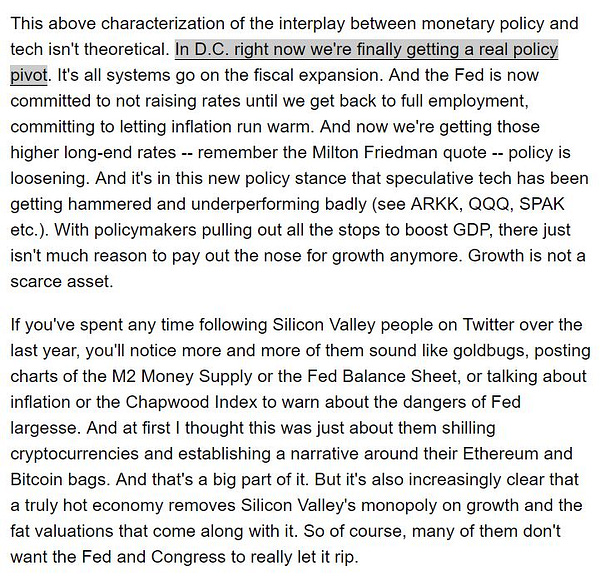Hoping some questions will stick
Questions from the week ended 21 March 2021
Every week I read widely across a range of stuff that is loosely connected to the business of technology. I read to learn and to find questions (not answers). These were the things that most interested me this week...
Hoping something will stick
Dragos Novac writes one of my favourite newsletters. He has a Nordic focus with plenty of wider thinking. This quote rings so true. He is speaking about EU but it could just as easily be Scotland or the UK:
“Being unable to have a consistent understanding of the tech world
+
Throwing huge piles of money at the local ecosystem
=
Hope that something will stick after all….
I know those words may sound harsh and everybody is friends with the money dealers preferring to look the other way rather than speak”
How do we tell the truth in an ecosystem addicted to “free” money?
Build slow and don’t break things
The first part of this post from Jitha Thatachari about Amazon and Stripe and building slow and with care is excellent and well worth thinking about. (Not sure about the rest).
Of course no-one will fund this because it is neither gaining traction nor deeptech?
Why you should not try to be productive
I love this post from the excellent Laetitia Vitaud. Captures so many things I struggle to put into words. In any serious value adding role by the hour "productivity" is a terrible measure (Note: its a terrible basis for professional services billing as well). As a dimension of the last point on creativity, I would add that productivity focus also kills the ability and desire to learn. And we all need to learn if we are to grow into our future.
So how do we shift away from measuring inputs to a value mindset in our work?
How the news business is doomed without Trump
I find this view of Trump explains a lot. I feel the quality of news has deteriorated in recent years and the pandemic has made this a lot worse. Its the flip side of news as entertainment - it increases the audience but it kills the value of the product for people who actually value serious news. This happens with all sorts of products all the time when they get popular. It also reinforces Ben Evans point - links to real news are worth nothing to Google and Facebook so why should they pay?
Delivering digital government
Nicolas Colin is probably the most consistent producer of content I find thought provoking. I cannot recommend his European Straits newsletter highly enough. Here is a brief overview of digital leaders and laggards from a country perspective. He has a realistic view of UK digital government rather than the delusional PT that UK and Scottish governments maintain. And this about quote about France is true of UK as well.
“yes, we could provide services in a more digital manner. But what about those who don't own a digital device or don't have access to the Internet?”
Whereas in Denmark I found this attitude: make services digital for those who can use digital and focus resources on those who need help. Guess which is more equal?
Serious leadership thinking…from France
I really need to read this book. This quote from Jean-Charles Samuelian-Werve, the CEO of French healthtech Alan is so perfect. It captures an approach to personal development that was embedded in PwC and fundamental to everything we did.
“At Alan, we are not looking for perfection, but for personal growth (Healthy Business)
We are NOT looking for perfection for Alaners. We look for personal growth. Alaners are not supposed to grow in every area at a time, and some areas might not apply to you. It is great to have one or two growth areas maximum at a time.
We know that having a growth mindset is hard. Personally, as co-founder and CEO, I experience it all the time. The complexity and the challenges for a hyper-growth company force me to try to hyper-grow myself and the bar is always moving. I know that many of us are feeling the same. My advice to my fellow Alaners is: don’t try to be perfect, focus on a few things at a time. It is going to be a lot easier to grow with the company, and to be happy about it!”
This is already too long so I will ask my question now. What are the questions you are asking this week...
And for those who have time here is a bonus bit of macroeconomics:
High tech valuations are a product of tight money
Why tight money has driven tech valuations - because tech is BYOG (bring your own growth.) I love counter intuitive arguments. Especially when they counter accepted consensus about something where the sum of human knowledge is close to zero. For example the impact of radical monetary policy over a long period of time (amplified by COVID).
The consensus on this is one thing we can be 100% certain is wrong. And note the throwaway at the end, one of the bad side effects is a misallocation of talent.






